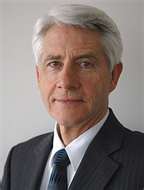 New Zealand’s new Minister for Climate Change Issues and chief climate negotiator, Tim Groser, yesterday announced the government’s intended changes to the Emissions Trading Scheme following last years ETS Review. There will be a limited period for consultation (to May 11) on the proposals before legislation is put before Parliament. The consultation document (PDF) and meeting dates are available here. Key points:
New Zealand’s new Minister for Climate Change Issues and chief climate negotiator, Tim Groser, yesterday announced the government’s intended changes to the Emissions Trading Scheme following last years ETS Review. There will be a limited period for consultation (to May 11) on the proposals before legislation is put before Parliament. The consultation document (PDF) and meeting dates are available here. Key points:
- Agriculture’s entry to the ETS may be delayed beyond 2015.
- There will be no increase to the $25/tonne unit price cap.
- The “two for one” transitional provision for big emitters will be phased out more gradually.
- The government will give itself powers to auction emissions units.
- There will be a review of the allocation of carbon credits to pre-1990 forests to take into account the changes to the forestry regime agreed in Durban last year.
Groser also announced the release today of New Zealand’s net emissions position for the 2008-12 Kyoto reporting period, now expected to be a surplus (that is, under NZ’s target) of 23.1 million tonnes, up from 21.9 mt in 2011.
News that agriculture may continue to escape carbon constraints is hardly surprising, given the government’s reluctance to annoy its heartland farming and agribusiness supporters, but it appears willing to risk confrontation with Maori forestry interests on pre-1990 carbon credit allocations. My view is that this tinkering around the edges of the scheme is designed to put the ETS into a kind of domestic political holding pattern until the shape of future international arrangements begins to emerge. Groser doesn’t want to frighten the horses until he absolutely has to, as this quote from Brian Fallow’s piece in the NZ Herald today might be taken to indicate:
Preferences for changing areas of the policy would vary a lot depending on what assumptions were made about the future carbon price, Groser said.
“If you think it will remain at the current low levels, you will reach one set of conclusions. Take a different view of the trajectory of the carbon price – and above all, this is a long game we are playing – and you may reach quite different conclusions.”
Getting international action on emissions reductions is certainly turning out to be a long game. We can only hope that it doesn’t turn into the diplomatic equivalent of a timeless test, and that the climate system is kind enough to give us time to play it. I’d not want to bet on either proposition.
Like this:
Like Loading...
 Tim Groser, the new Minister for Climate Change Issues, is adamant in his defence of the intention to further delay bringing the agricultural sector into the Emissions Trading Scheme beyond the current date of 2015 unless there are adequate abatement options open to them by then and unless other countries step up to the mark with mitigation measures. His remarks on Morning Report on Thursday made it clear that the interests of the overall economy were more important than mitigation of the 0.2% of the global greenhouse gas emissions that New Zealand is responsible for. He spoke of the difficulty of managing the economy through tough times.
Tim Groser, the new Minister for Climate Change Issues, is adamant in his defence of the intention to further delay bringing the agricultural sector into the Emissions Trading Scheme beyond the current date of 2015 unless there are adequate abatement options open to them by then and unless other countries step up to the mark with mitigation measures. His remarks on Morning Report on Thursday made it clear that the interests of the overall economy were more important than mitigation of the 0.2% of the global greenhouse gas emissions that New Zealand is responsible for. He spoke of the difficulty of managing the economy through tough times.
 New Zealand’s new Minister for Climate Change Issues and chief climate negotiator, Tim Groser, yesterday
New Zealand’s new Minister for Climate Change Issues and chief climate negotiator, Tim Groser, yesterday  A
A  I’ve been writing about climate science and policy for the last five years, and taking an interest in the subject for far longer, but I’ve seldom read more depressing news than Fiona Harvey’s Guardian article last week —
I’ve been writing about climate science and policy for the last five years, and taking an interest in the subject for far longer, but I’ve seldom read more depressing news than Fiona Harvey’s Guardian article last week —